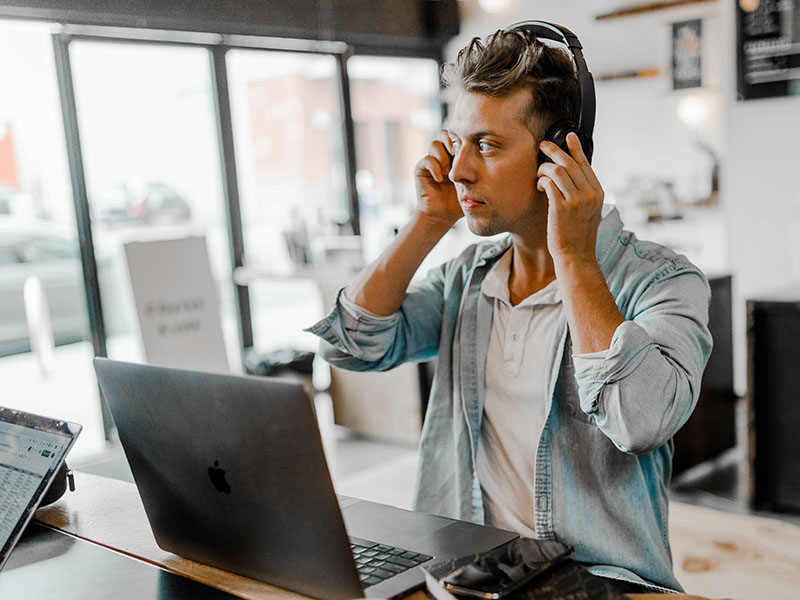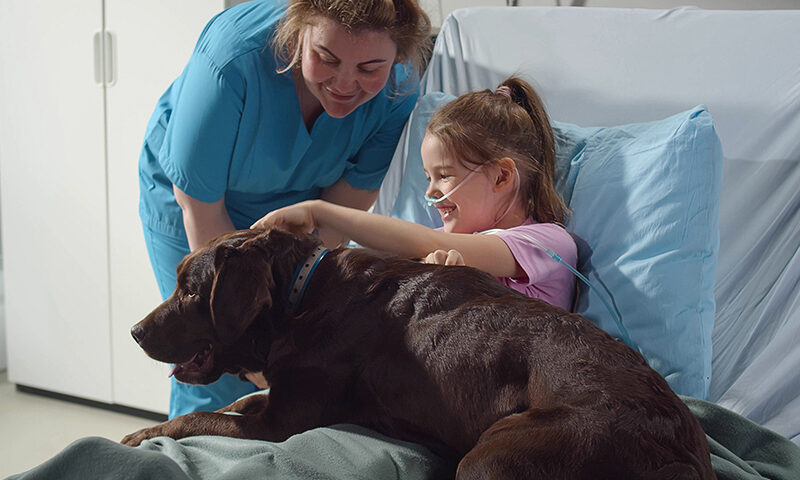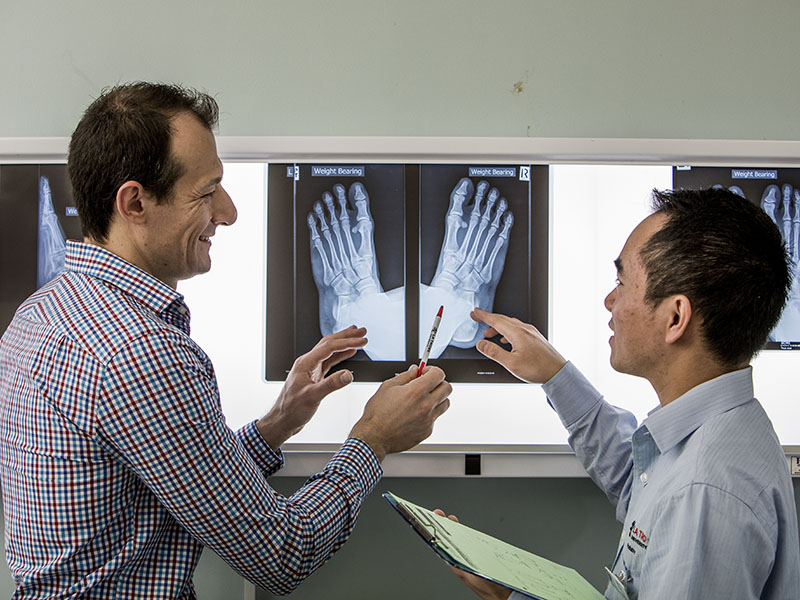
The tools you need to future-proof your career
November 5, 2020
When you need to upskill fast
August 10, 2021Before lockdown, it wasn’t uncommon for attendees of La Trobe’s Melbourne and Bendigo campuses to run into a corgi while they grabbed lunch, or for them to be joined by a Labrador in their morning lecture.
Spotting the puppy participants in La Trobe’s exclusive PTSD assistance dog training program became the norm. So what are our favourite pooches up to now that most of us are working and studying from home?
According to Dr Tiffani Howell, lead researcher of the program, the dogs are still working hard and continuing their training – although, like the rest of us, their current day-to-day life is looking a little different.
When they enter the program, each puppy is allocated a raiser who adopts the pup for the first year of her life. The puppy is also given several socialisers, who bring her on campus and help expose her to as many situations as possible.
Dr Howell says the role of socialisers has decreased due to social distancing protocols, but that raisers are still engaging in training once a week with the Centre for Service and Therapy Dogs Australia (CSTDA) – the dog training organisation partnered with La Trobe for the duration of the project.
‘Ordinarily, dog training is once a week on campus and usually in a group session. We’d have about six to eight dogs in each session and CSTDA would spend an hour or two with the dogs,’ says Dr Howell.
‘What’s happening now is that the CSTDA has to work with each raiser and puppy individually, which is much more time-consuming for the trainers but realistically the only way to keep up the training.’
Currently, raisers meet weekly with the CSTDA for one-on-one hour-long training sessions with the pups. These sessions take place at local parks near campus where all humans involved maintain the 1.5-metre social distancing rule and hygiene requirements.
The importance of exposure
Exposure and socialisation play an important role in a puppy’s development, especially if they’re training to be an assistance dog. Raisers and socialisers work together to expose the pup to as many different situations as possible at a young age, which can include taking them to shopping centres, cafes, restaurants and on public transport.
According to Dr Howell, there’s concern across the assistance dog space that lockdown may affect the younger puppies’ development.
‘It’s believed that there are specific periods within a dog’s development when they’re really amenable to new experiences and exposure to lots of different things, and that’s during puppyhood,’ says Dr Howell.
‘There is a concern that if you miss that period you never really get it back, so we’re going to find out if that’s true. People are doing what they can to expose the puppies to different situations, but it’s difficult at the moment with lockdown measures.’
Life after lockdown
The program is continuing to welcome new pups into the fold, with recent additions including the gorgeous Duke, Luna and Moji. More puppies will soon be joining the program as initially planned before coronavirus restrictions, with Bendigo still actively looking for raisers – if you’re interested in becoming one, send an email to Dogs on Campus.
Dr Howell states that for younger dogs like Duke, Luna and Moji, initial exposure isn’t as big of an issue in the first few weeks of their training since the priority is getting the pups settled into their home environment.
However, there’s little knowledge of what it will mean for the program down the track when a puppy is several months old and hasn’t been exposed to many of the situations it’ll encounter later in life. CSTDA will be working hard with raisers and socialisers once restrictions are lifted to make up for some of this lost time.

There are also questions about what life after lockdown will look like for pet dogs. Family pooches are undoubtedly having an excellent time during isolation, now their owners are at home most of the time (although we’re not certain the same can be said for cats).
Dr Howell says that from a research perspective, she’s interested in learning more about whether there may be a rise in separation anxiety among our pets once we return to work or study. Once restrictions are lifted, she recommends contacting a qualified, reward-based animal behaviourist to help manage any behavioural problems that develop in pet dogs as a result of the COVID-19 situation.
As for La Trobe’s PTSD pups in training, Dr Howell says that the research and training teams are looking forward to resuming the regular program once it’s safe to do so.
‘In terms of getting the current dogs back on campus, of course we have to do what the Victorian and Federal governments think is best. When we can safely transition the puppies, raisers and socialisers back on campus, we certainly intend to ramp up again and go back to doing weekly group training,’ she says.
Here’s hoping we’re not too far off from once again seeing our four-legged friends on campus.



